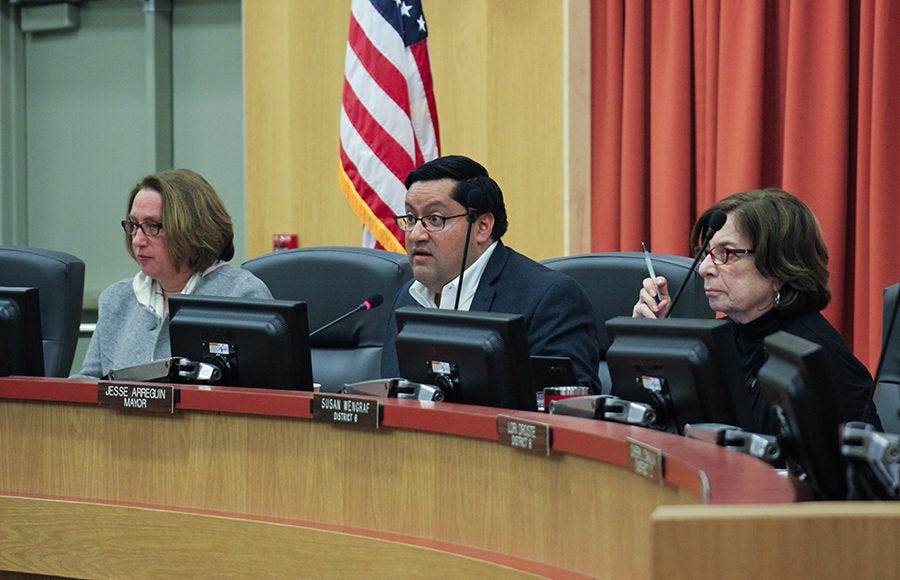25. In historic move, Berkeley divests from animal products
The city voted Tuesday night to decrease animal product purchases by 50% by 2024
Welcome back to Giving to Strangers. Every issue I explore what matters in social good and offer sane, relevant donation advice. Giving to Strangers is written by me, Anya Marchenko.
To receive the next Giving to Strangers right in your inbox, subscriber here. Your support always means a lot.

Yesterday, the city of Berkeley took a small but historic step towards a better future.
The city council voted to decrease the purchasing of animal-based food products by 50% by 2024. The adopted resolution cites the City’s plan of “being a global leader in addressing climate change, advancing environmental justice, and protecting the environment” as key reasons. The ordinance will impact the city’s own purchases of meat and dairy, with no impact on grocery stores or restaurants in Berkeley.
The ordinance is more about setting a precedent than dealing a blow to the meat industry. The city just doesn’t buy that much food. The food Berkeley purchases is for the jail and the senior center, as well as catering for city council meetings, emergency operations, and special programs (according to a representative from the City’s finance hotline).1
Nevertheless, the resolution is thrilling for the precedent it sets for other cities to take concrete action on climate and animal welfare. In this, Berkeley follows San Francisco, which voted for a nearly identical resolution in August 2020 (to reduce purchasing by 50% by 2024) after pressure from Compassionate Bay.
Activists are confident the resolution will eventually lead to full divestment.
“Our plan is to make 100% [divestment] the obvious choice,” said Matt Johnson, an activist who worked on the divestment movement. DailyCal reports that the mayor and a council member will review plans to achieve 100% plant-based food by one year from now.
Berkeley’s resolution is in large part a result of work by Direct Action Everywhere (DxE), which has been putting pressure on the city since late 2020 by organizing protests, public comments, letters, and meetings with the mayor.
I’ve been following DxE’s efforts since early summer. So let me take you back to June, when things began heating up between the mayor and DxE.
The road to divestment is long (and full of megaphones)
A tall 20-something with brown, disheveled hair who looks vaguely like a Silicon Valley startup project manager yells into a megaphone: “Mayor Arreguín, I’m disappointed in you.” Then, Almira Tanner, DxE’s Lead Organizer, takes the megaphone and echoes: “You’re the mayor of the so-called most progressive city in the country, but you aren’t willing to take even basic action for animals.”
We’re standing on the sidewalk in front of a nondescript, one story house near Berkeley’s busy Safeway, holding bright yellow signs saying “Divest from Animal Ag” and “Ban Factory Farms”. A big, elementary-school sized tub of chalk sits on the ground, recently employed to inscribe climate change slogans and encouraging or needling messages for the mayor on the pavement.
For nearly 8 consecutive weeks, activists from DxE have been protesting outside of the house of Berkeley’s mayor, Jesse Arreguín. Arreguín promised to introduce an ordinance that would have the City of Berkeley divest from animal agriculture.
The ordinance, however, hadn’t materialized. Hence the protest.

DxE began advocating for divestment in late 2020 by sending postcards and doing public comments at council meetings. When those tactics failed, on Jan 23, 2021, DxE organized a protest outside of Jesse Arreguín’s house. The protesters spent an hour parading around the street, occasionally peacefully blocking traffic, and (to the chagrin of some neighbors) doing “speak outs” using a megaphone hooked up to a loudspeaker. The personal tactic hit home, and the mayor agreed to meet over Zoom the day before the next planned protest at his house.
Activists were heartened by those initial meetings in February and March 2021.
“Arreguín said it should be pretty easy for the city to do this, and that he would support 100% plant-based purchasing as an end goal, with ~50% as an intermediary goal,” said Johnson, DxE’s press coordinator who attended the meeting. “Then, he committed to a third meeting with the department heads and organizers. This is an important step because it is the meeting where you’d go over contracts, implementation, etc. He said he’d introduce an ordinance early May. Then, radio silence.”
The radio silence was broken after the protests started again in early summer. And now, Mayor Arreguín — with a lot of prodding — has followed through.
Good policy is a back and forth
While a lot of credit goes to activists, I’m also proud of my representatives in Berkeley.
The back and forth between the activists and the City highlights how trailblazing public policy rarely follows the “Great Person” theory. In other words, it’s rarely one enlightened representative who uses their power to enact change. Rather, we need both open minded, hear-you-out representative as well as annoying, don’t-stop-it-till-we-get-it activists to push and pull at each other to eventually arrive at a solution.
While the numbers involved are small, the transition to plant-based is not easy. Different city departments need to coordinate to review food suppliers and their contracts, change those contracts, find new suppliers if needed, etc.
So the City’s next challenge, and what will likely determine the long-term success of this program, is the implementation. I’ll cover that in a follow-up post.
For now, I hope other cities are watching.
Would your town or city divest? Would you want it to? Leave a comment below:
And share this post with a friend:
According to that same representative, the city had spent ~$350,000 on food by May 2021. So food expenditures are likely to remain small potatoes relative to the size of Berkeley’s budget, which is ~$590 million for the next fiscal year.


Great insights, thanks for discussing this!